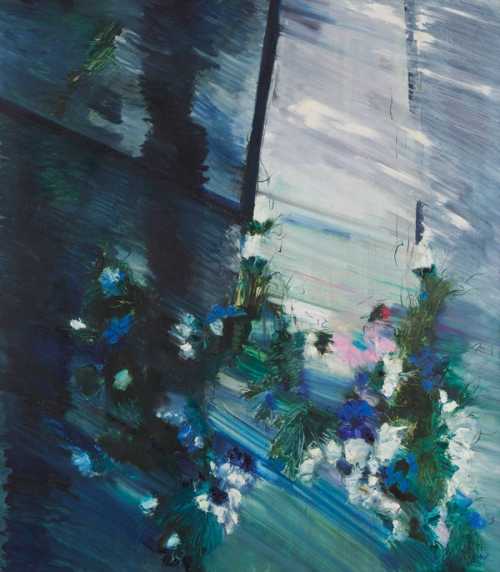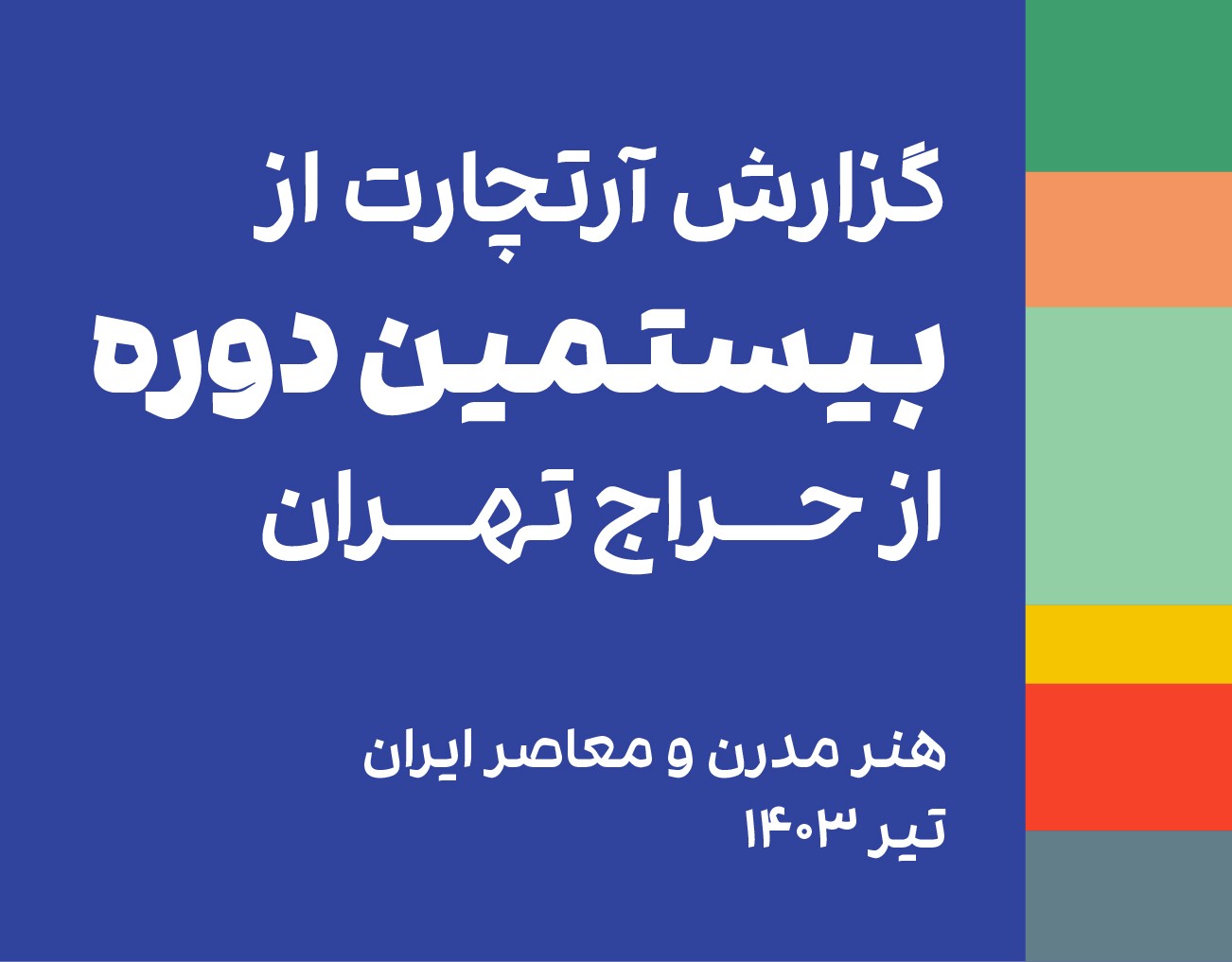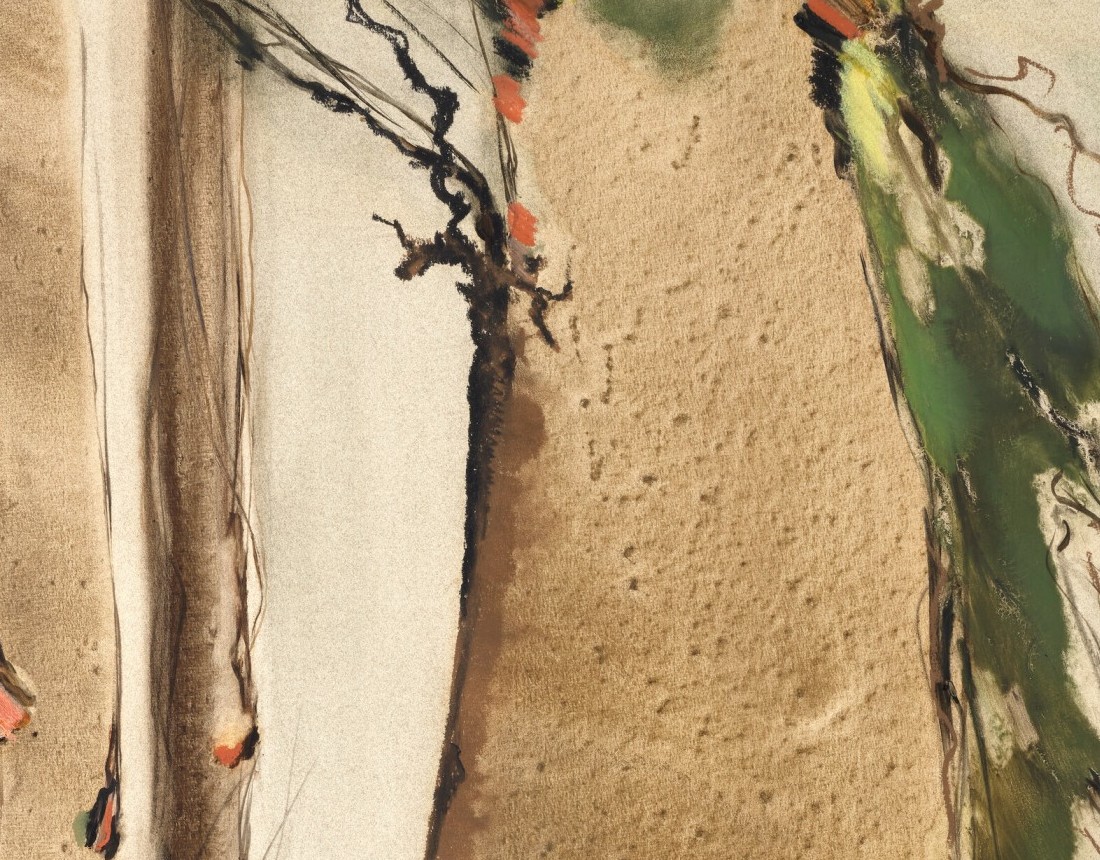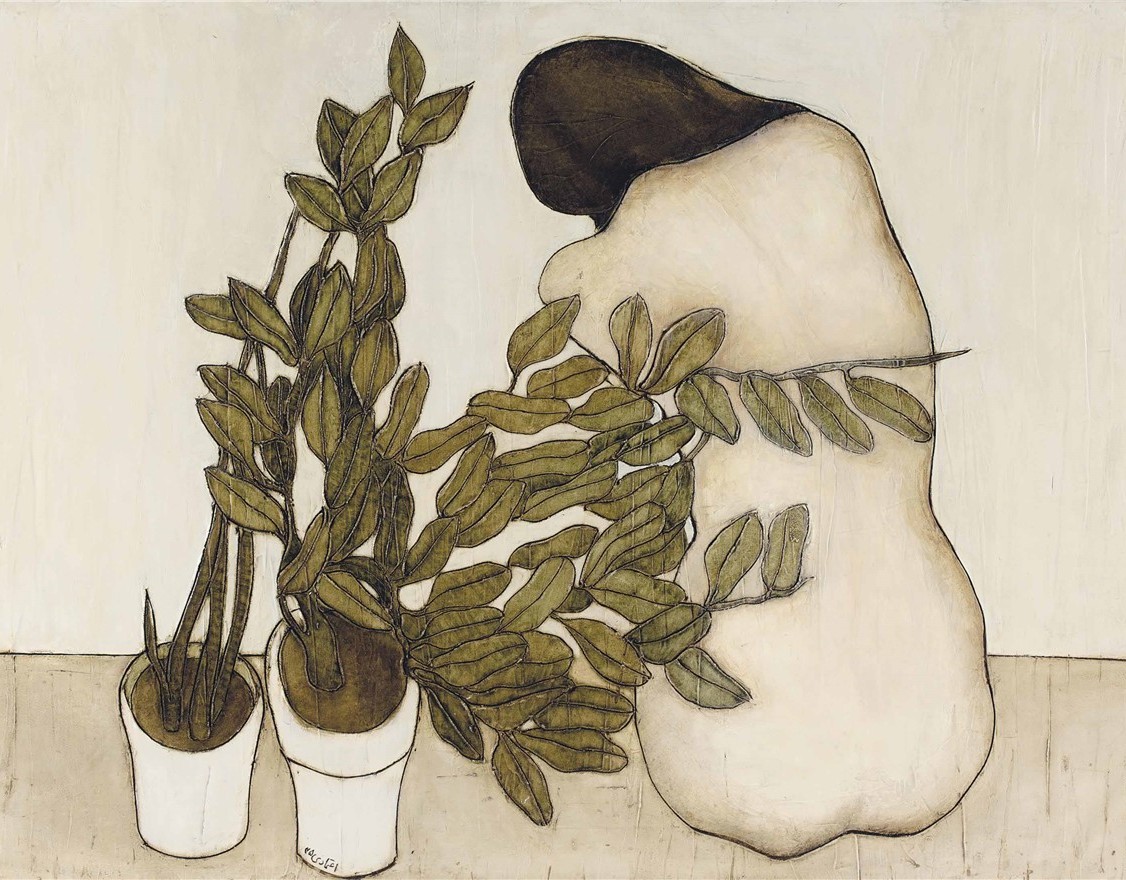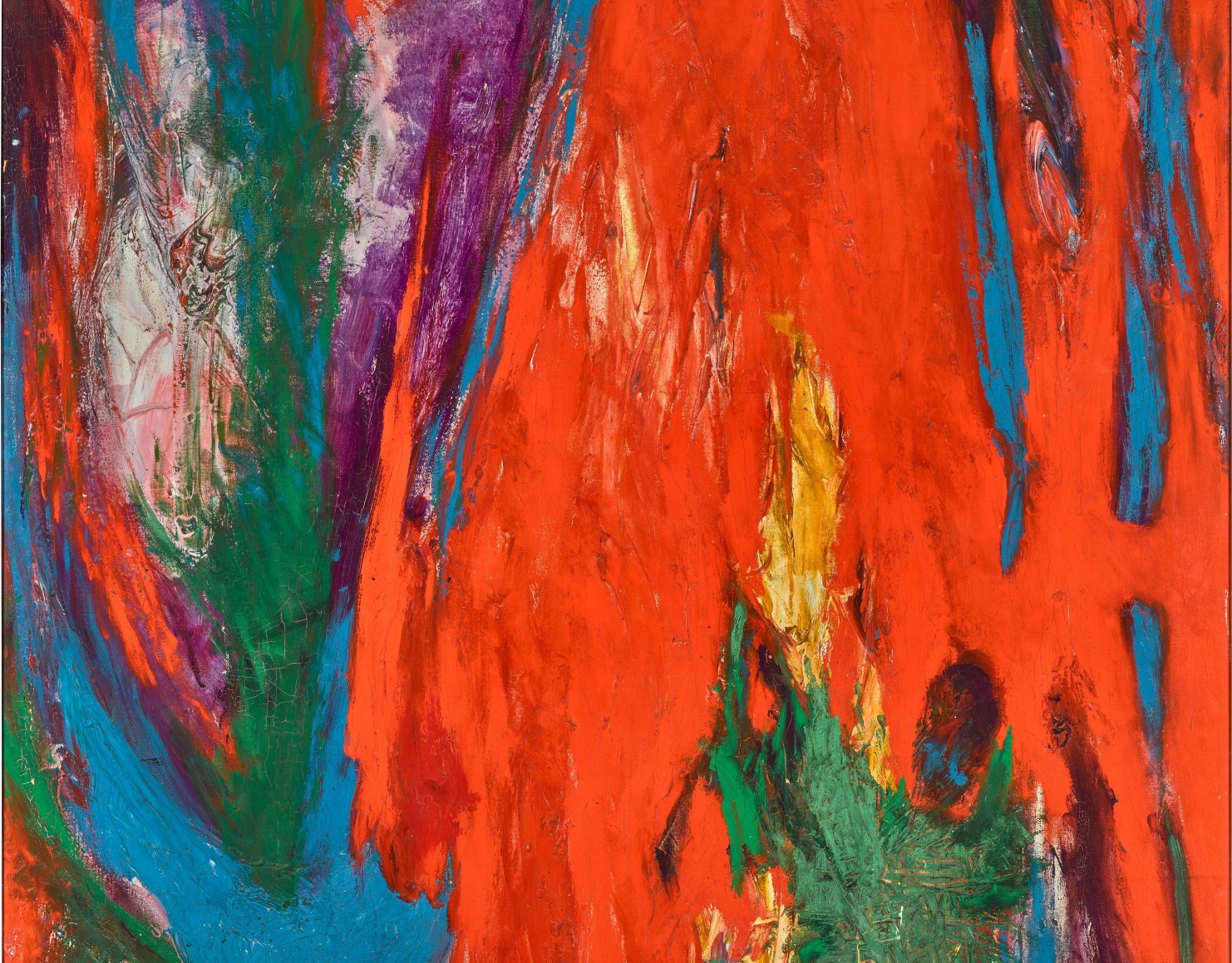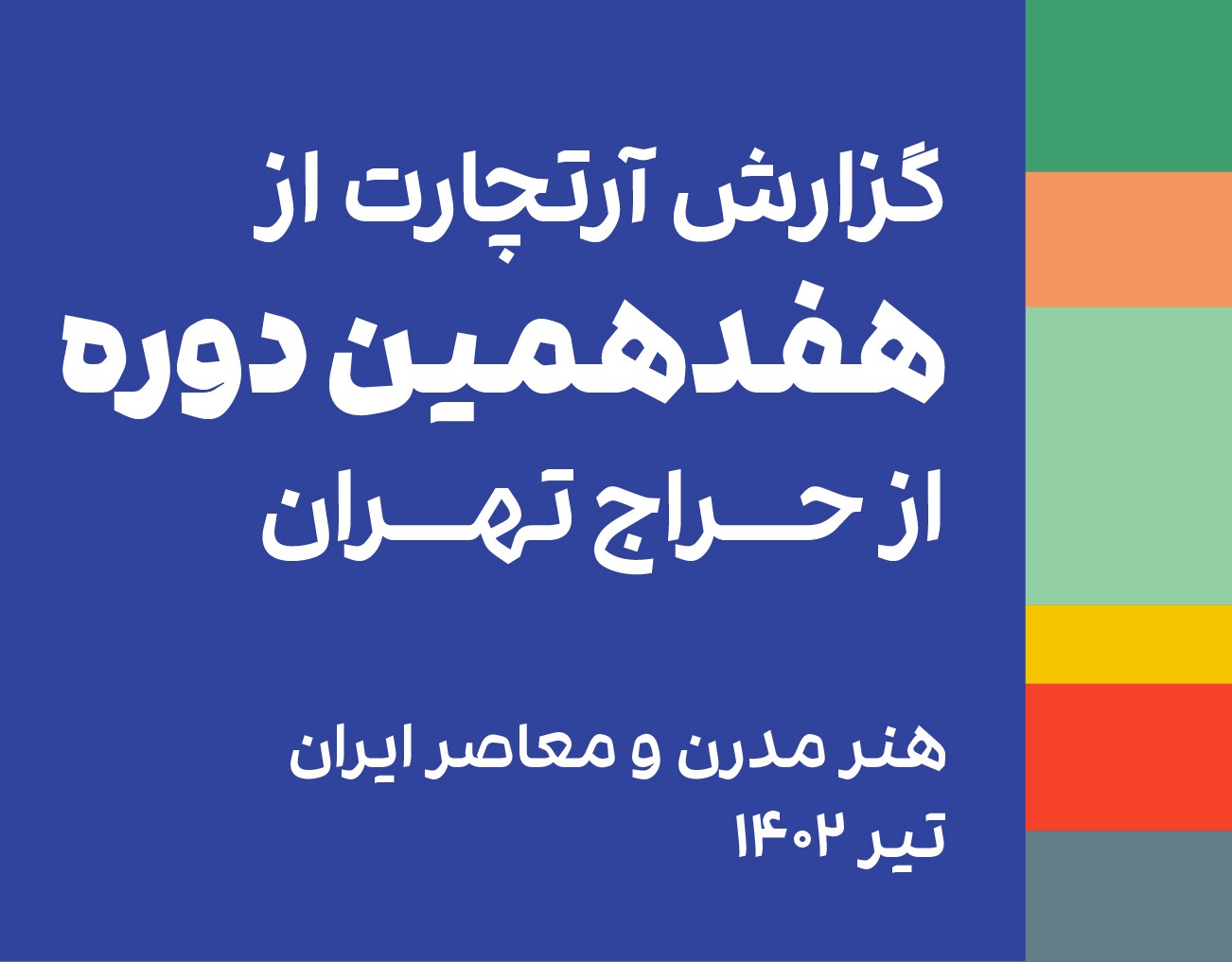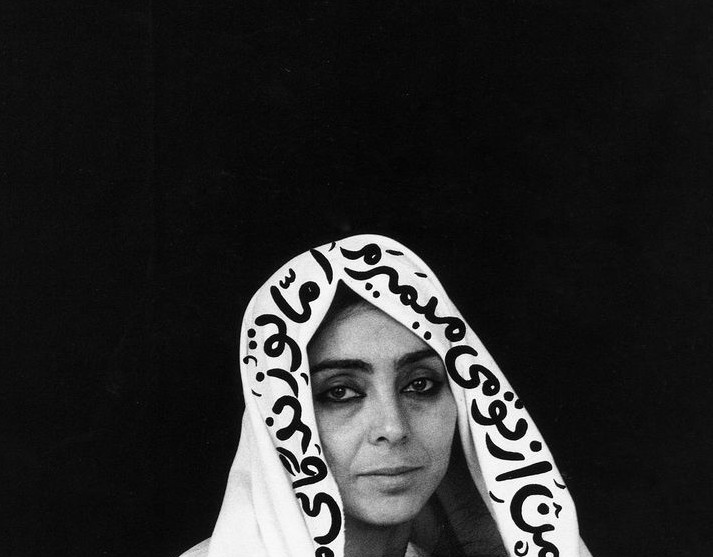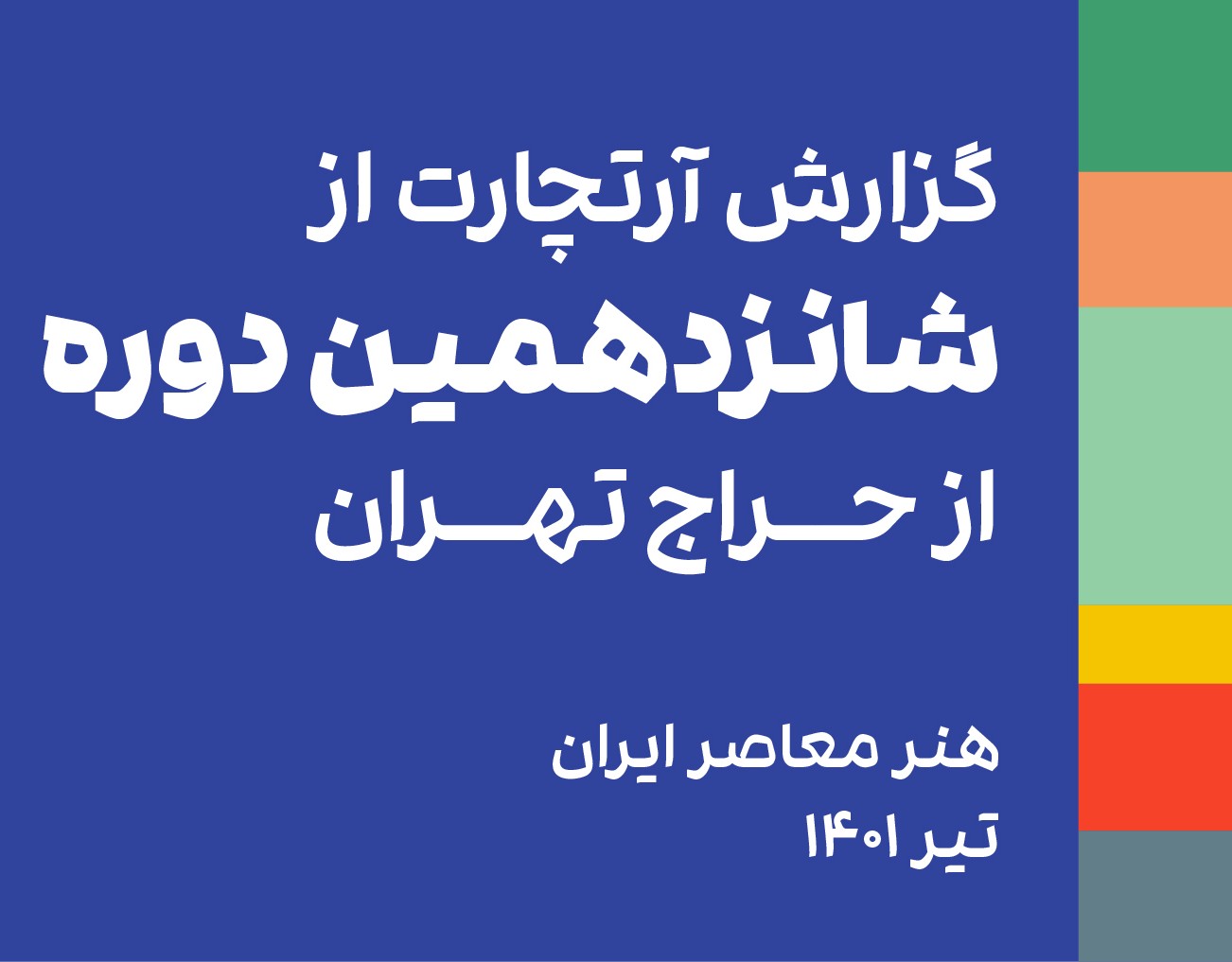About Farideh Lashai
Farideh Lashai was an Iranian painter, videographer, and writer known for her lyrical depictions of nature. She began learning painting at the age of ten from Jafar Petgar. After graduating from a translation school in Munich, she moved to Austria and continued her education at the Vienna Academy of Decorative Arts. Her work in crystal design during this period culminated in an exhibition in Milan in 1967.
Lashai returned to Iran in 1972 and exhibited her paintings for the first time at Seyhoun Gallery the following year. Since then, she has held numerous exhibitions in Iran, Germany, the United States, and other countries. In addition to her visual art, she translated works such as Bertolt Brecht's "The Good Person of Szechwan" and Edita Morris's "The Flowers of Hiroshima" into Persian. She also wrote an autobiographical novel titled "The Jackal's Shadow." In 2001, Lashai co-founded the Dena Group with prominent artists including Gizella Varga Sinai and Farah Osuli. This group of Iranian women artists aimed to present their works independently and, over six years, showcased the art of many Iranian women both domestically and internationally.
Nature is a dominant element in Lashai’s paintings, characterized by loose lines, rhythmic curves, and wide color spots to express a lyrical representation of nature. In an interview with Ahmad Reza Dalvand, she remarked, "Nature has had and still has an extraordinary attraction for me, not as a category unrelated to me and outside of me, but nature in relation to human inner struggles and as answers to emotional conflicts and questions—perhaps ontological ones."
Lashai's approach blends an oriental perspective with a new expression imbued with social sensitivity. Her work goes beyond capturing the essence of nature; she symbolically incorporates her social positions and feelings, resulting in poignant and sometimes dark images. Her social and political concerns, influenced by her experiences in Munich's artistic circles, are reflected in her paintings, animations, and installations. Mojabi noted the human aspect of nature in Lashai's works: "Nature is not just a tree, a flower, and a mountain for her; it is the surrounding universe that is interpreted through human presence and interaction."
Lashai returned to Iran in 1972 and exhibited her paintings for the first time at Seyhoun Gallery the following year. Since then, she has held numerous exhibitions in Iran, Germany, the United States, and other countries. In addition to her visual art, she translated works such as Bertolt Brecht's "The Good Person of Szechwan" and Edita Morris's "The Flowers of Hiroshima" into Persian. She also wrote an autobiographical novel titled "The Jackal's Shadow." In 2001, Lashai co-founded the Dena Group with prominent artists including Gizella Varga Sinai and Farah Osuli. This group of Iranian women artists aimed to present their works independently and, over six years, showcased the art of many Iranian women both domestically and internationally.
Nature is a dominant element in Lashai’s paintings, characterized by loose lines, rhythmic curves, and wide color spots to express a lyrical representation of nature. In an interview with Ahmad Reza Dalvand, she remarked, "Nature has had and still has an extraordinary attraction for me, not as a category unrelated to me and outside of me, but nature in relation to human inner struggles and as answers to emotional conflicts and questions—perhaps ontological ones."
Lashai's approach blends an oriental perspective with a new expression imbued with social sensitivity. Her work goes beyond capturing the essence of nature; she symbolically incorporates her social positions and feelings, resulting in poignant and sometimes dark images. Her social and political concerns, influenced by her experiences in Munich's artistic circles, are reflected in her paintings, animations, and installations. Mojabi noted the human aspect of nature in Lashai's works: "Nature is not just a tree, a flower, and a mountain for her; it is the surrounding universe that is interpreted through human presence and interaction."
The Most Expensive Artwork
At Auctions
First Attendance
1 February 2007
# Attendance
70
# Artworks
90
Average Realized Price
48,662 USD
Average Min Estimate
32,528 USD
Average Max Estimate
44,911 USD
Sell-through Rate
78.161%
Average Growth of Artwork Worth
44.388%
Timeline
Soft Edge of the Blade Vol. 3 exhibition
10 November
Modern & Contemporary Middle East auction
28 October
Nature in Transit exhibition
24 October
The 24th Tehran - Contemporary Iranian Art auction
3 October
Recovery/ The Seventh Series exhibition
13 June
Maydan: A Living Agora exhibition
14 April
Modern and Contemporary Collector exhibition
7 February
Maximal Miniatures: Contemporary Art from Iran exhibition
3 February
Treasure 6 exhibition
10 January
Landscape Plateau exhibition
13 December
Modern and Contemporary Middle Eastern Art auction
13 November
Timeless Creation exhibition
25 October
Abstract Illusions exhibition
11 October
The 21st Tehran - Contemporary Iranian Art auction
11 October
The 20th Tehran- Modern and Contemporary Iranian Art auction
5 July
Endless Treasures exhibition
21 June
Modern and Contemporary Middle Eastern Art auction
5 June
Modern and Contemporary Art Dubai auction
31 May
Treasure 4 exhibition
24 May
A Collection exhibition
10 May
Spotlight: Contemporary | ONLINE ONLY auction
25 April
Connoisseur's Look exhibition
19 April
New Year/ New Vision exhibition
23 February
The Artwork of Legendary Artists exhibition
9 February
The 19th Tehran -Classic and Modern Iranian Art auction
24 January
Gozar Project exhibition
19 January
20th Century Art/Middle East auction
24 October
October 2023: Day Two auction
21 October
A Selection of 70 Years of Iranian Sculpture exhibition
4 August
The 17th Tehran Modern and Contemporary Iranian Art auction
18 July
Rana Farnoud, Farideh Lashai, Farah Ossouli, Gizella Varga Sinai exhibition
23 June
Intersect 01 exhibition
19 May
Ordibehesht exhibition
12 May
resize exhibition
13 April
Tehran- 16th- Iranian contemporary art auction
1 July
Variete exhibition
20 May
Resize exhibition
13 May
Last Chapter exhibition
25 February
The last event 1400 exhibition
25 February
Middle Eastern Art Online Sale auction
9 February
Winter selection 2022 exhibition
14 January
The 15th Tehran- Modern Iranian Art auction
14 January
10th Collector exhibition
7 January
The Mana Jalalian Collection: A Rare Collection of Iranian Modern Art exhibition
15 November
No.9 auction
3 September
Color Dynamism exhibition
6 August
When I Count, There Are Only You… exhibition
24 July
8th Collector exhibition
9 July
Small Artworks collection exhibition
11 June
The Collection of Liam Gallery exhibition
20 May
Collector 7 exhibition
5 February
Sanctuary exhibition
15 January
The 13th Tehran- Modern and Contemporary Iranian Art auction
15 January
No.8 auction
1 January
Middle Eastern, Modern and Contemporary Art auction
11 November
Collector 6 exhibition
18 September
Post-war art, contemporary paintings, design auction
26 June
+98 exhibition
21 February
دوازدهمین دوره حراج تهران auction
17 January
Connoisseur's Look exhibition
12 July
یازدهمین دوره حراج تهران auction
5 July
Discoveries auction
5 June
Modern and Contemporary Middle Eastern Art auction
1 May
20th Century Art / Middle East auction
30 April
Artnet Online - March 2019 auction
27 March
Abstract and Contemporary Art auction
12 December
The Color of the Sky exhibition
30 November
Influence exhibition
9 November
The 9th Tehran- Classic and Modern Iranian Art auction
29 June
Dubai: Post War and Contemporary Art auction
22 March
++Video++ exhibition
11 March
هشتمین دوره حراج تهران auction
12 January
Modern and Contemporary Middle Eastern Art auction
28 November
Dobiaschofsky - 9 Nov 2017 auction
9 November
Shams gallery Collection Special Sale exhibition
7 July
Farideh Lashai - Between the Motion / and the Act / Falls the Shadow exhibition
24 June
Borderlessness exhibition
9 June
The invited work: Farideh Lashai exhibition
30 May
Modern and Contemporary Middle Eastern Art auction
26 April
Modern & Contemporary Art auction
18 March
Eyewitness exhibition
11 February
The 6th Tehran- Contemporary Iranian Art auction
23 December
Modern and Contemporary Art II auction
26 November
20th Century Art: Middle East auction
20 October
The Art of Lebanon Part II and Modern and Contemporary Middle Eastern Art auction
12 October
Group exhibition exhibition
30 September
پنجمین دوره حراج تهران auction
27 May
The Art of Lebanon and Modern and Contemporary Middle Eastern Art auction
27 April
Alchemy: Objects of Desire auction
21 April
THE TYRANNY OF AUTUMN exhibition
20 April
Farideh Lashai Retrospective exhibition
12 March
Towards the Ineffable exhibition
21 November
Modern & Contemporary Art auction
20 October
Farideh Lashai: Only A Shadow exhibition
16 September
چهارمین دوره حراج تهران auction
29 May
Dobiaschofsky Auktionen - Bern - May 2015 auction
7 May
Legendary Iranian Artworks exhibition
8 January
Islamic and Indian Art auction
7 October
سومین دوره حراج تهران auction
30 May
The Young Collectors auction
27 May
Modern & Contemporary Arab, Iranian & Turkish Art auction
19 March
In Memory of Faride Lashai exhibition
2 March
Contemporary Art auction
16 October
Contemporary Art and Design auction
27 June
دومین دوره حراج تهران auction
28 May
United Nations World Food Programme - Charity auction
30 April
Thus in Silence in Dreams exhibition
4 April
It Is It, and It Is Only Now... exhibition
3 April
Auctionshaus Zofingen - Dec 2012 auction
1 December
1Ere Vente a Dubai International Modern And Contemporary Art auction
22 October
Contemporary Art and Design auction
11 October
Intérieurs auction
26 January
SHOW OFF! exhibition
13 November
Modern and Contemporary Arab, Iranian and Turkish Art Part I auction
25 October
Post-War & Contemporary Art auction
14 September
Farideh Lashai: Rabbit in Wonderland exhibition
2 November
Contemporary Art / Arab & Iranian auction
20 October
Modern & Contemporary Middle Eastern & South Asian Art auction
2 June
Modern and Contemporary and Latin American Art auction
11 May
Modern & Contemporary Middle Eastern & South Asian Art auction
3 June
Modern & Contemporary Arab, Iranian, Indian & Pakistani Art auction
24 November
Modern and Contemporary Arab and Iranian Art auction
23 October
Contemporary Art Day Sale auction
18 October
Modern & Contemporary Arab, Iranian, Indian & Pakistani Art auction
3 March
International Modern & Contemporary Art auction
31 October
Modern & Contemporary Arab & Iranian Art auction
24 October
MODERN AND CONTEMPORARY ART auction
1 February
Articles
Artchart in Conversation with Seyed Saleh Beheshti, Director of B Gallery 26 January 2025
B Gallery officially opened on December 13, 2024, in Tehran with the exhibition "Landscape: Plateau," led by Saleh Beheshti. The exhibition features over 70 works by renowned artists such as Kamal-ol-Molk, Ali Akbar Sanati, Sohrab Sepehri, Abolghasem Saeedi, Marcos Grigorian, Mohsen Vaziri Moghaddam, Parvaneh Etemadi, Farideh Lashai, Pariyoush Ganji, as well as pieces by younger gen...
Report on the 20th Tehran Auction: The Seventh Auction of Modern and Contemporary Iranian Art 10 July 2024
The Tehran Auction commenced its operations by showcasing and selling modern and contemporary Iranian art, sustaining this focus for four consecutive sessions from 2012 to 2015. The 20th edition of the Tehran Auction, held on July 5, 2024, also centered on modern and contemporary Iranian art. During this session, 115 works by 111 artists were put up for auction, with 107 pieces succ...
A Review of Christie's Modern and Contemporary Dubai Online Auction, Spring 2024 2 June 2024
The Modern and Contemporary Dubai online auction was held on Christie's website from May 9 to May 31, 2024. In this auction, works by 70 artists were featured, totaling 90 artworks. Out of these, 75 pieces were sold, resulting in a total sale of $2.2 million. Fourteen Iranian artists also had their works presented in this auction, achieving a 100% sales rate. The most expensive piec...
Iranian Art Market Report for 1402 SH (2023-2024) 20 April 2024
Artchart, which had previously examined the Iranian Art Market in 1401 SH (2022-2023), has once again provided an in-depth report for 1402 SH (2023-2024). The forthcoming report will analyze the data collected in 1402 SH and compare it to previous years to illustrate the current state and trends within the Iranian art market. The initial section provides an overview of the mos...
A Look at the Market of Works of Iranian Female Artists 16 March 2024
In its annual publications, Artchart consistently evaluates the contributions of both male and female artists. Notably, in the report from the 19th Tehran auction, there is a focused analysis on the achievements of female artists throughout all Tehran auctions. The document presented below has been meticulously prepared to offer an in-depth investigation into the market presence of...
A Report of Sotheby's Middle East Auction, October 2023 28 October 2023
This fall, Sotheby’s is showcasing several important private collections at the heart of its bi-annual 20th Century Art/Middle East sale. From pioneering modernist masters to groundbreaking contemporary artists, one of the binding principles guiding these female-led collections are passion, dedication and the connections and conversations incited by powerful works. It is rare to be...
۱7th Tehran Auction Sales Report 26 July 2023
The 17th Tehran auction: modern and contemporary, was held on Friday July 21st, 2023 at Parsian Azadi Hotel. This auction achieved a total sale of 214 billion tomans equivalent to 4.3 million dollars, which was a growth of 77.8% compared to the previous period. Artchart has observed the 17th Tehran auction in the upcoming report.
Female Art Players in Iran's and Middle East's Art Scene 23 May 2023
Women have always played an important role in the development of Middle Eastern culture and art, while there are few references to their activities in art history books. Recently, there have been many efforts to recognize female artists and their influences, but the women who have been involved in the presentation of art, are still lesser-known actors in the region's art world. This...
Sixteenth Tehran Art Auction Report 3 July 2022
On the evening of Friday, July 1, 2022, the sixteenth edition of the Tehran Auction dedicated to contemporary Iranian art was held at the Parsian Azadi Hotel. At this event, 120 artworks by 117 artists were offered for sale. The auction successfully sold all of the artworks, achieving a total sales figure of 78 billion and 100 million tomans. The average price per piece (by dividing...
